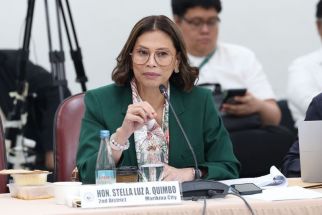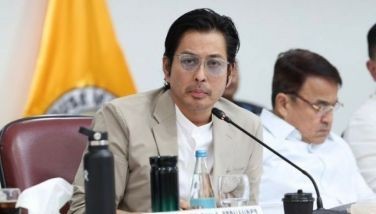UNICEF country rep suggests lobbying for bigger health budget
May 30, 2006 | 12:00am
While the term "lobbying" carries a negative connotation, an expert said yesterday that this practice is needed to increase the country’s budget for health care.
Dr. Zahidul Huque, country representative of the United Nations Children’s Fund (UNICEF), said it is "naïve" to think that health care is not a political issue and that the budget needed to improve the system can be acquired through "political lobbying."
"The health sector is getting a little less priority in terms of budget... The way to do this (increase budget) is to get the support of politicians, the politicians at all levels," he claimed in an interview during a forum about "Building Unities on a Strategic Framework and Options."
Organized by the non-government organization Linangan ng Kababaihan Inc., the forum was intended to discuss ways to reduce maternal mortality in the Philippines.
Huque said that to see real human development, it should be the priority of all countries to improve health care.
Professor Lynn Freedman, director of Averting Maternal Death and Disability Program at Columbia University, said the budget for health care must be sufficient enough to cover more people.
She also said service fees at health facilities often drive away patients.
"User’s fees at the point of service, at the point a person comes for services, should be abolished because it becomes a barrier to life-saving care," Freedman said, but clarified that doing this does not mean that all service fees must be waived.
She said insurance and a pooling system could be applied to cover those who cannot afford to pay for their treatment.
"Our recommendation is that that fee should be abolished. There are other ways to finance the (health care) system," Freedman said.
However, Freedman said having an effective health care system not only requires sufficient funding, but equal access to its services. She said there are countries where health care is well-funded but the system excludes the poor or the uninsured.
Dr. Zahidul Huque, country representative of the United Nations Children’s Fund (UNICEF), said it is "naïve" to think that health care is not a political issue and that the budget needed to improve the system can be acquired through "political lobbying."
"The health sector is getting a little less priority in terms of budget... The way to do this (increase budget) is to get the support of politicians, the politicians at all levels," he claimed in an interview during a forum about "Building Unities on a Strategic Framework and Options."
Organized by the non-government organization Linangan ng Kababaihan Inc., the forum was intended to discuss ways to reduce maternal mortality in the Philippines.
Huque said that to see real human development, it should be the priority of all countries to improve health care.
Professor Lynn Freedman, director of Averting Maternal Death and Disability Program at Columbia University, said the budget for health care must be sufficient enough to cover more people.
She also said service fees at health facilities often drive away patients.
"User’s fees at the point of service, at the point a person comes for services, should be abolished because it becomes a barrier to life-saving care," Freedman said, but clarified that doing this does not mean that all service fees must be waived.
She said insurance and a pooling system could be applied to cover those who cannot afford to pay for their treatment.
"Our recommendation is that that fee should be abolished. There are other ways to finance the (health care) system," Freedman said.
However, Freedman said having an effective health care system not only requires sufficient funding, but equal access to its services. She said there are countries where health care is well-funded but the system excludes the poor or the uninsured.
BrandSpace Articles
<
>
- Latest
- Trending
Trending
Latest
Trending
Latest
Recommended





























